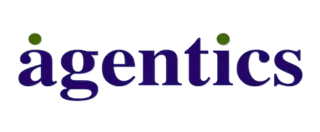
7 Ways Automation Sales Enhances Efficiency and Customer Engagement
GeneralOverview
Automation sales significantly enhances efficiency and customer engagement by streamlining sales processes. This enables teams to concentrate on high-value activities, all while improving response times and interactions with clients. For instance, AI-driven tools can boost productivity by as much as 30%. Additionally, automated follow-ups have been shown to significantly increase conversion rates. These examples illustrate the transformative impact of such technologies on business outcomes, underscoring the necessity of integrating automation into sales strategies.
Introduction
Automation is revolutionising the sales landscape, empowering businesses to streamline processes and elevate customer engagement to unprecedented levels. By integrating advanced technologies like AI communication tools and automated systems, organisations are witnessing remarkable enhancements in efficiency and productivity. Yet, as companies eagerly embrace these innovations, they encounter challenges that may impede their success.
How can businesses effectively leverage the power of automation to not only enhance their sales performance but also cultivate deeper connexions with their customers?
Agentics: Streamline Sales Processes with AI Communication Solutions
Agentics empowers companies with AI communication solutions that significantly enhance transaction processes by focusing on automation sales. By leveraging Voice AI Agents and Text AI Agents, sales teams can delegate routine tasks, such as managing repetitive inquiries and organising data. This strategic integration allows them to concentrate on high-value activities. Not only does this accelerate response times, but it also elevates overall customer interactions, enabling professionals to forge stronger connexions with clients.
Research indicates that businesses utilising AI solutions have boosted productivity by 30%, with AI users reporting a 47% increase in efficiency, underscoring the transformative potential of these technologies. Industry leaders, including Vito Vishnepolsky, emphasise that automation sales in automating transaction processes with AI enhances efficiency and leads to improved business outcomes, making it a crucial investment for future success.
Nevertheless, organisations may encounter challenges in adopting AI tools, such as data quality issues and resistance to change, which must be addressed to fully harness the benefits of these innovations.
Salesforce: Enhance Lead Management and Sales Tracking
Salesforce revolutionises lead management and revenue tracking through automation sales of essential processes, empowering teams to prioritise leads based on engagement and potential value. With features like automated follow-ups and real-time analytics, business professionals can swiftly make informed decisions. This system not only conserves valuable time but also guarantees that no lead is overlooked, significantly enhancing conversion rates.
Businesses utilising automation sales for revenue tracking have reported a remarkable 14.5% increase in productivity, according to Nucleus Research, highlighting the effectiveness of these tools. Industry specialist Joel Lim asserts, “To succeed in automation sales, you must be implementing automated systems,” highlighting the necessity of mechanisation in transaction processes to maintain a competitive advantage in today’s fast-paced market.
For instance, sales teams leveraging Salesforce have successfully optimised their workflows, resulting in a 300% increase in client interaction, as marketing automation drives a similar growth in engagement. The latest features in Salesforce, including enhanced lead scoring and tailored outreach capabilities, enable professionals to engage with prospects meaningfully, ensuring that every interaction counts.
To fully leverage these advantages, marketing teams should continuously assess and adjust their lead scoring criteria to align with evolving customer behaviours.
Keap: Eliminate Repetitive Tasks to Boost Sales Efficiency
Keap provides powerful automation sales tools designed to empower sales teams by eliminating repetitive tasks such as data entry and follow-up scheduling. By implementing automation sales, business professionals can focus more on building relationships and closing deals, which significantly boosts productivity. In fact, teams that automate tasks save an average of 6 hours per week per representative and report a 27% higher closing rate on average. This transformation not only enhances efficiency but also fosters a more engaged and motivated sales force.
As Larry Fiorino, Co-Founder and CEO, asserts, “Sales streamlining isn’t just about simplifying tasks; it’s about enabling sales teams to focus on their strengths—building connexions and closing deals.”
With 80% of sales professionals believing that automation sales will be crucial for success in the near future, tools like Keap are essential for modern marketing strategies. By reducing the burden of administrative tasks, sales representatives can dedicate their time to strategic activities that enhance client engagement and satisfaction.
Mailchimp: Improve Customer Retention with Sales Automation
Mailchimp’s automation sales functions empower companies to craft targeted email campaigns that effectively cultivate leads and enhance client retention. By leveraging automation sales to automate follow-up emails and deliver personalised content, businesses can sustain engagement with their audience, resulting in significantly higher retention rates. This strategic application of technology not only elevates client satisfaction but also drives repeat purchases. Remarkably, email marketing yields between $36 and $40 for every dollar spent, underscoring its financial viability. Furthermore, automation sales through automated emails can generate 320% more revenue than non-automated emails. As noted by marketing specialists, personalised emails are opened 82% more often than generic ones, emphasising the critical role of tailored communication in fostering client loyalty and engagement. Additionally, companies that nurture leads through marketing tools produce 50% more revenue for 33% less than non-nurtured prospects, highlighting the importance of personalised interactions in today’s competitive landscape.
Zendesk: Enhance Customer Relationship Management with Automation
Zendesk revolutionises customer relationship management through mechanisation, particularly in ticketing systems and customer feedback collection. This optimisation allows organisations to respond to inquiries with remarkable efficiency, significantly reducing response times. Notably, sales teams leveraging AI-driven tools for automation sales experience a 33% increase in overall productivity. This automation sales not only accelerates resolution times but also empowers teams to gather critical insights into client preferences and needs.
As a result, businesses can forge stronger connexions with their clients, ultimately enhancing satisfaction and loyalty. Organisations employing automation sales report a substantial boost in client retention and engagement, with 47% of businesses asserting that CRM software plays a crucial role in client retention.
Furthermore, experts emphasise that automation sales through automating feedback collection yields more accurate data, enabling businesses to effectively adapt their offerings to meet evolving client expectations.
Agentics, a leader in AI communication and process solutions, provides tools that enhance these methods, ensuring that businesses can navigate the complexities of modern customer engagement.
Salesloft: Automate Follow-Ups and Reporting for Increased Productivity
Salesloft’s efficiency features streamline follow-up communications and reporting, empowering sales teams to maintain consistent interactions with prospects. By utilising automation sales for automating reminders and monitoring interactions, professionals can guarantee timely follow-ups—an essential factor in boosting conversion rates.
Research shows that:
- Reaching out to a lead within five minutes of their inquiry can increase conversion likelihood by 100 times.
- Responding within that timeframe makes you nine times more likely to convert them.
This level of automation sales not only enhances productivity but also significantly improves the effectiveness of marketing strategies. In fact, teams leveraging automation tools report a 10% increase in overall productivity, and organisations that implement automated follow-ups experience similar gains.
Furthermore, it is vital to understand that:
- 80% of transactions require five follow-ups before closing a deal, underscoring the necessity of persistence in sales tactics.
As sales professionals increasingly adopt automation sales solutions, they can anticipate a significant enhancement in their engagement metrics and overall revenue performance.
Deloitte: Integrate Marketing and Sales for Cohesive Growth
Deloitte underscores the critical importance of integrating marketing and commerce through automation to foster unified growth. By aligning these two functions, businesses can create a seamless customer journey that not only enhances engagement but also drives conversions.
Automation sales tools that facilitate communication between marketing and sales divisions ensure that both departments are synchronised in their objectives, leading to improved performance and significant revenue growth. For example, companies that have adopted automated communication strategies report a remarkable 14.5% increase in sales productivity and an 80% surge in lead generation.
Furthermore, organisations observe a $5.44 return for every dollar invested in marketing technology, highlighting the financial benefits of these strategies. This alignment not only streamlines workflows but also enhances user experiences, as 71% of marketers have reported improvements in overall satisfaction due to such integrations.
Notably, 79% of enterprises regard mechanisation as essential in the client experience process. As organisations progress towards 2025, the focus on cohesive growth through automation sales and automated communication will be crucial in achieving sustainable revenue increases.
HBR: Boost Sales and Marketing Performance with Automation
Research clearly indicates that automation sales play a pivotal role in enhancing both sales and marketing performance. By streamlining processes and improving data analysis capabilities, companies involved in automation sales gain valuable insights into customer behaviour. This allows them to optimise their strategies for automation sales and enhance overall operational efficiency. For instance, organisations employing marketing technology report an impressive 451% increase in qualified leads. This statistic showcases the effectiveness of these tools in driving performance. Moreover, a significant 80% of companies utilising marketing technology experience enhanced lead generation, underscoring the importance of automation sales in sustaining a competitive advantage in today’s rapidly evolving market.
Furthermore, 74% of users indicate that automation sales in marketing technology assist them in saving time, further highlighting the efficiency improvements these tools provide. As technology continues to advance, companies that prioritise these innovations are better positioned to adjust to shifting consumer needs and enhance their marketing efforts. However, challenges such as integration problems and employee opposition must be addressed to fully harness the advantages of mechanisation. Embracing these technologies is not just beneficial; it is essential for success in the modern business landscape.
Salesmate: Understand the Distinct Benefits of Sales vs. Marketing Automation
Salesmate underscores the distinct advantages of streamlining marketing and automation sales, emphasising that while both domains aim to enhance efficiency, they serve different roles within an organisation. The focus of automation sales is primarily dedicated to optimising the sales process, empowering sales teams to concentrate on closing deals rather than being bogged down by administrative tasks. Conversely, marketing technology centres on lead generation and nurturing through automation sales, ensuring potential clients remain engaged throughout their journey.
This distinction is critical; organisations that grasp these differences can tailor their strategies effectively, thereby amplifying their overall impact. For instance, companies leveraging automation sales tools report a 20% reduction in human errors alongside a significant increase in productivity, allowing sales representatives to invest more time in valuable customer interactions. Furthermore, representatives involved in automation sales who employ automated systems save over 2 hours daily, translating to roughly three months of labour annually.
As we approach 2025, comprehending these nuances will be essential for organisations striving to refine their operational strategies and improve their automation sales to meet their business objectives. As Christopher Rhine aptly notes, “Boosting revenue and reducing the level of resistance to attaining them should be central to every sales enhancement strategy.”
Additionally, it is crucial to acknowledge the challenges businesses encounter when implementing these strategies; for example, 45% of B2B companies identified generating sufficient leads as their most significant hurdle in automation sales. This underscores the necessity of understanding the differences in automation sales to effectively tackle such challenges.
Mailchimp: Improve Onboarding Processes for Sales Reps
Mailchimp can significantly enhance the onboarding processes for representatives by automating training schedules and resource distribution. This automation addresses a critical issue: many organisations struggle with inefficient onboarding. By providing new employees with timely information and assistance, including the option of having an ‘onboarding buddy’—a feature that 56% of new recruits deem significant—companies can ensure their teams are well-prepared to engage effectively with clients.
This system not only accelerates the onboarding procedure but also improves the overall performance of new representatives. In fact, organisations with structured onboarding processes see new hires becoming 50% more productive, and effective onboarding can increase retention by up to 82%.
Industry leaders emphasise that investing in automated training is crucial for long-term success, as it streamlines onboarding and ultimately boosts automation sales. Furthermore, with 36% of employers lacking a structured onboarding process, the necessity for automation becomes even more apparent. It’s time for companies to invest in these solutions to secure their future success.
Conclusion
Automation sales has emerged as a transformative force, enhancing both efficiency and customer engagement across various industries. By integrating advanced technologies such as AI communication solutions, businesses can streamline their sales processes. This allows teams to focus on high-value interactions rather than mundane tasks. Such a shift not only accelerates response times but also fosters deeper connexions with clients, ultimately driving better business outcomes.
Throughout this discussion, several key tools and strategies have been highlighted, including:
- Agentics’ AI solutions
- Salesforce’s lead management capabilities
- Keap’s task automation
- Mailchimp’s targeted campaigns
- Zendesk’s customer relationship management enhancements
Each of these platforms illustrates how automation can lead to significant productivity gains, improved customer retention rates, and increased sales conversion. The statistics provided—such as the 30% boost in productivity and the 320% revenue increase from automated emails—underscore the tangible benefits of embracing these technologies.
As businesses look towards the future, the importance of automation in sales cannot be overstated. Companies that proactively implement these solutions will not only enhance their operational efficiency but also create a more engaging customer experience. The call to action is clear: invest in automation tools and strategies now to ensure sustainable growth and a competitive edge in an increasingly digital marketplace. Understanding and leveraging the distinct advantages of sales automation will be crucial for organisations aiming to thrive in the years to come.
Frequently Asked Questions
What is Agentics and how does it improve sales processes?
Agentics offers AI communication solutions that enhance transaction processes by automating routine tasks, allowing sales teams to focus on high-value activities. This includes managing repetitive inquiries and organising data, which accelerates response times and improves customer interactions.
What productivity benefits do businesses experience from using AI solutions like Agentics?
Research indicates that businesses utilising AI solutions have boosted productivity by 30%, with AI users reporting a 47% increase in efficiency.
What challenges might organisations face when adopting AI tools?
Organisations may encounter challenges such as data quality issues and resistance to change, which need to be addressed to fully leverage the benefits of AI innovations.
How does Salesforce enhance lead management and sales tracking?
Salesforce automates essential processes in lead management and revenue tracking, allowing teams to prioritise leads based on engagement and potential value. Features like automated follow-ups and real-time analytics help professionals make informed decisions quickly.
What productivity increase have businesses reported from using Salesforce for revenue tracking?
Businesses utilising automation sales for revenue tracking have reported a 14.5% increase in productivity.
What results have sales teams achieved by leveraging Salesforce?
Sales teams using Salesforce have optimised their workflows, resulting in a 300% increase in client interaction, driven by marketing automation that enhances engagement.
What is Keap and how does it benefit sales teams?
Keap provides automation sales tools that eliminate repetitive tasks like data entry and follow-up scheduling, allowing sales teams to focus on building relationships and closing deals, which boosts productivity.
How much time do teams save by automating tasks with Keap?
Teams that automate tasks save an average of 6 hours per week per representative and report a 27% higher closing rate on average.
What do sales professionals believe about the future of automation sales?
80% of sales professionals believe that automation sales will be crucial for success in the near future, making tools like Keap essential for modern marketing strategies.
Enjoyed this post? Share it with your network!
10 Best AI Sales Tools to Boost Your Team’s Performance

Discover the top 10 best AI sales tools to enhance team performance and drive revenue growth.
Mastering Test Call Numbers: A Step-by-Step Guide for Sales Directors

Elevate your communication with our guide on mastering test call numbers for sales success.
7 Ways Automated Outbound Calls Boost Sales Performance

Discover how automated outbound calls enhance sales performance and streamline communication.
